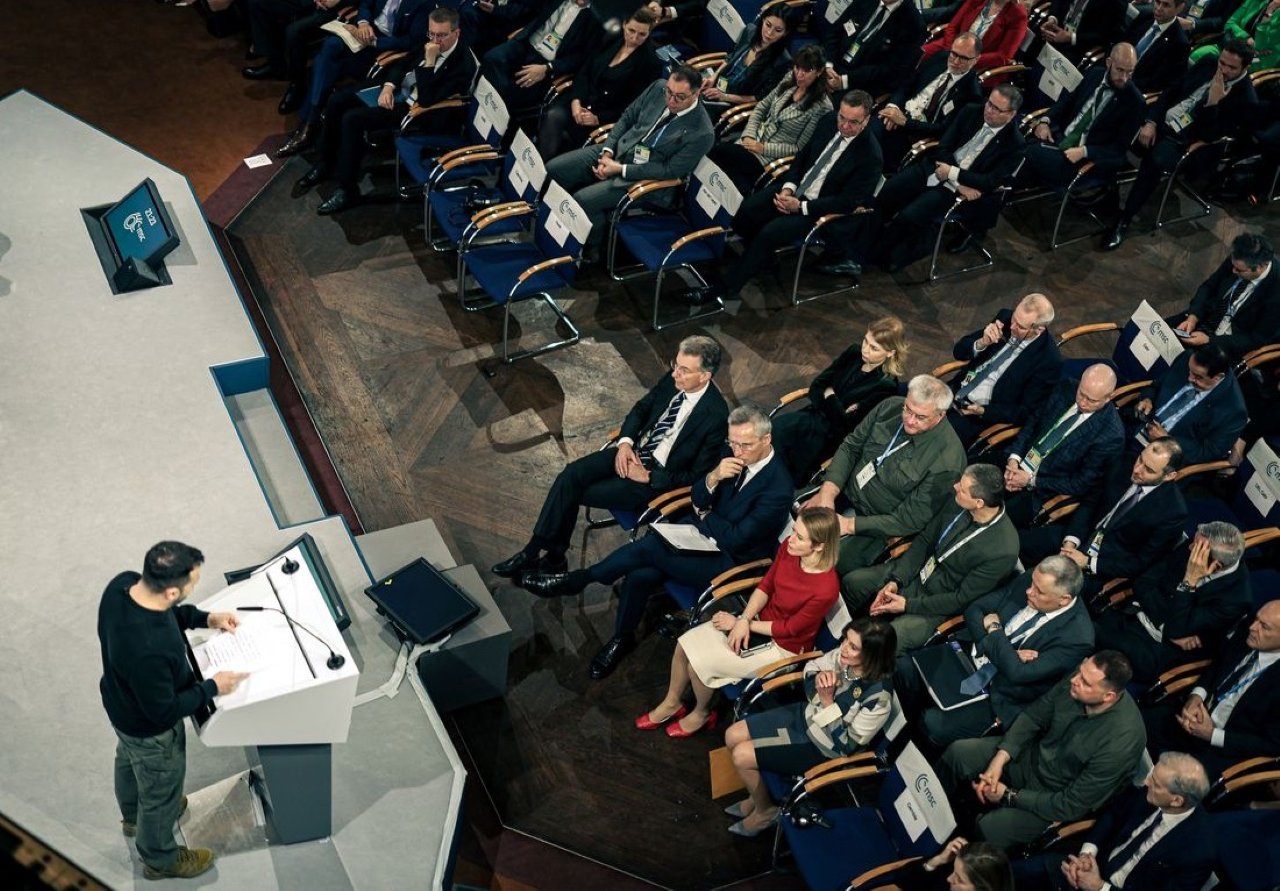Munich, 14 February 2025
The Munich Security Report 2025 analyzes the far-reaching consequences of the multipolarization of the international order. For many politicians and citizens around the globe, a more multipolar world holds significant promise. But recent trends suggest that the negative effects of greater multipolarity are prevailing as divides between major powers grow and competition among different order models stands in the way of joint approaches to global crises and threats. The report therefore makes the case for “depolarization”, highlighting the need for substantial reforms of the international order.
Table of Contents
Foreword
by Christoph Heusgen, Chairman of the Munich Security Conference
Executive Summary
Chapter 1 – Introduction: Multipolarization
Munich Security Index 2025
Chapter 2 – United States: Maga Carta
Chapter 3 – China: Pole Positioning
Chapter 4 – European Union: A Perfect Polar Storm
Chapter 5 – Russia: The Czar’s Gambit
Chapter 6 – India: Modi-fied Status
Chapter 7 – Japan: A New Normal
Chapter 8 – Brazil: Lula Land
Chapter 9 – South Africa: The Fate of Good Hope
Across the world, multipolarization evokes mixed feelings. The optimistic reading highlights opportunities for more inclusive global governance and greater constraints on Washington, long seen as too dominant a power by many. In the pessimistic reading, multipolarization increases the risk of disorder and conflict and undermines effective cooperation. While the Munich Security Index 2025 suggests that in aggregate, people in the G7 countries are less optimistic about a more multipolar world than respondents in the “BICS” countries (BRICS minus Russia), national views on multipolarity are shaped by distinct perspectives on the current international order and a desirable future one.
In the empirical chapters, the Munich Security Report 2025 zooms in on eight actors which, to varying extents, assert the claim to constitute a pole in the international order: the United States (authored by Leonard Schütte), China (by Randolf Carr and Paula Köhler), the European Union (by Nicole Koenig and Leonard Schütte), Russia (by Jintro Pauly), India (by Sophie Eisentraut), Japan (by Randolf Carr), Brazil (by Nicole Koenig and Isabell Kump), and South Africa (by Julia Hammelehle).
The report shows that visions of multipolarity are also polarized. This makes it increasingly difficult to adapt the existing order peacefully, avoid new arms races, prevent violent conflicts within and among states, allow for more inclusive economic growth, and jointly address shared threats like climate change. As the great and not-so-great powers cannot tackle these challenges alone, their cooperation will be crucial. But for this cooperation to materialize, the world could well use some “depolarization.” 2025 will show whether this is in the cards – or whether the world will grow yet more divided than it is.
Multipolarization – Munich Security Report 2025
Bibliographical data: Tobias Bunde, Sophie Eisentraut, and Leonard Schütte (eds.), Munich Security Report 2025: Multipolarization, Munich: Munich Security Conference, February 2025, https://doi.org/10.47342/EZUC8623 .
- Multipolarization – Munich Security Report 2025 (PDF) – 5 MB
- Zusammenfassung (PDF) – 72 KB
- Munich Security Index 2025 (PDF) – 1 MB
More about the Munich Security Report 2025

